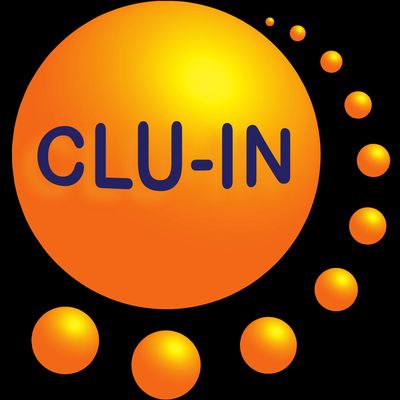Since 1998, The Contaminated Site Clean-Up Information (CLU-IN) website has presented Internet Seminars covering a wide variety of technical topics related to hazardous waste characterization, monitoring, and remediation. For select seminar topics offered since 2012, we are making complete video recordings available through our archives. This feed contains all video seminars archived in the last 12 months. For a complete list of seminars archived since 2000, please visit http://www.clu-in.org/live/archive/. Our Rehabilitation Act Notice for reasonable accommodation is available at http://www.clu-in.org/training/accommodation.cfm. CLU-IN was developed by the U.S. Environmental Protection Agency (EPA) but is intended as a forum for all waste remediation stakeholders. For more information and to view upcoming live offerings, please visit http://www.clu-in.org/live/. For a complete list of RSS feeds available on CLU-IN, please visit http://www.clu-in.org/rss/about/.
http://www.clu-in.org/live/archive
Superfund Research Program Progress in Research Webinar Part 1: Metals (Oct 21, 2020)
The NIEHS Superfund Research Program (SRP) Progress in Research webinar series highlights promising research from SRP Centers awarded grants in 2020. In this session, awardees from Harvard School of Public Health, University of North Carolina-Chapel Hill, and University of Arizona will describe their research projects, accomplishments, and next steps. The Harvard School of Public Health Center, "Metals and Metal Mixtures: Cognitive Aging, Remediation, and Exposure Sources (MEMCARE)," focuses on understanding the effects of exposure to heavy metals (Pb, As, Mn, Cd, Cr, and Se) and metal mixtures on late-life cognitive health. Center scientists also conduct research on remediation strategies for these exposures to reduce the risk of cognitive decline and memory loss in older populations. The University of North Carolina-Chapel Hill SRP Center works to address public health challenges related to inorganic arsenic (iAs) contamination of private drinking water wells. Their research explores the biological mechanisms and susceptibility factors underlying diseases associated with iAs exposure, with a focus on diabetes. They also investigate methods for predicting well water contamination by arsenic and other toxic metals, along with removal strategies. Center scientists hope to develop interventions to reduce the prevalence of iAs-associated diabetes and other diseases. The University of Arizona SRP Center, "Exposures, Health Impacts, and Risk for Mine Waste Contamination," is addressing the unique human health risks encountered in the U.S. Southwest, where distinct geologic and climatic attributes affect human health and exposures to a variety of toxicants, especially arsenic. Arsenic exposure has been linked to the development of diabetes which is especially prevalent in vulnerable populations residing near metal-mining sites. Center scientists are investigating how chronic exposure to arsenic-containing mine waste contributes to the development of diabetes and how exposure can be prevented through a combination of innovations related to the characterization of legacy mine sites and remediation strategies, data science interoperability, and community-engaged health promotion. To view this archive online or download the slides associated with this seminar, please visit http://www.clu-in.org/conf/tio/SRPPIR12_102120/
